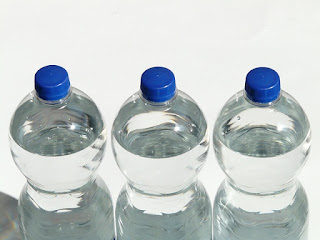The Health Risks of Reusing Plastic Water Bottles
Many people reuse plastic water bottles, thinking that they are saving money and reducing waste. However, reusing plastic water bottles can have negative effects on your health and the environment, as plastic can leach toxic chemicals into your water over time. In this article, we will explain why reusing plastic water bottles is bad for you, and what you can do instead.
How Does Plastic Leach Chemicals Into Water?
Plastic water bottles are made from different types of plastic, such as polyethylene terephthalate (PET), high-density polyethylene (HDPE), or polycarbonate (PC). These plastics may contain additives, such as bisphenol A (BPA), phthalates, antimony, or dioxins, that can migrate from the plastic into the water under certain conditions. These conditions include:
- Heat: Exposure to high temperatures, such as sunlight, microwaves, or dishwashers, can increase the rate of chemical leaching.
- Time: The longer the plastic bottle is used, the more likely it is to release chemicals into the water.
- Damage: Scratches, cracks, or dents on the plastic bottle can create more surface area for chemical leaching.
- pH: The acidity or alkalinity of the water can affect the stability of the plastic and its additives.
- Reuse: Refilling the plastic bottle with different types of liquids, such as juice, soda, or alcohol, can interact with the plastic and its additives.
What Are the Health Effects of Drinking Water From Plastic Bottles?
Drinking water from plastic bottles that have leached chemicals can have adverse effects on your health, such as:
- Hormonal disruption: BPA and phthalates are known as endocrine disruptors, which means they can interfere with the normal functioning of your hormones. This can lead to reproductive problems, developmental abnormalities, obesity, diabetes, and cancer.
- Cancer: Antimony and dioxins are classified as carcinogens, which means they can cause cancer. Antimony can also cause respiratory irritation, skin problems, and gastrointestinal disorders.
- Infection: Reusing plastic water bottles without proper cleaning can create a breeding ground for bacteria, fungi, or viruses. This can cause infections, diarrhea, vomiting, or other illnesses.
What Are the Environmental Effects of Reusing Plastic Water Bottles?
Reusing plastic water bottles may seem like a green choice, but it is not. Plastic water bottles are not designed to be reused, and they can degrade over time. This can result in:
- Plastic pollution: Plastic water bottles that are discarded or littered can end up in landfills or oceans, where they can take hundreds of years to decompose. They can also break down into microplastics, which are small pieces of plastic that can harm wildlife and enter the food chain.
- Greenhouse gas emissions: Plastic water bottles that are incinerated or decomposed can release greenhouse gases, such as methane and carbon dioxide, which contribute to global warming and climate change.
- Resource depletion: Plastic water bottles require a lot of resources to produce and transport, such as oil, water, and energy. These resources are finite and could be used for more essential purposes.
What Are Some Healthy Alternatives to Plastic Water Bottles?
If you want to avoid the health and environmental risks of reusing plastic water bottles, you can try some of these healthy alternatives:
- Glass bottles: Glass bottles are reusable, recyclable, and do not leach chemicals into your water. They are also easy to clean and sterilize. However, they are heavier and more fragile than plastic bottles.
- Stainless steel bottles: Stainless steel bottles are reusable, durable, and do not leach chemicals into your water. They are also good for keeping your water cold or hot. However, they may dent or scratch over time, and they may alter the taste of your water.
- Reusable plastic bottles: Reusable plastic bottles are made from safer plastics, such as HDPE or Tritan, that do not contain BPA or phthalates. They are also lightweight and shatterproof. However, they may still leach other chemicals into your water, and they may degrade over time.
- Tap water: Tap water is the cheapest and most accessible source of drinking water. It is also regulated by the government and tested for safety and quality. However, it may contain contaminants, such as chlorine, lead, or fluoride, depending on your location and plumbing system.
Conclusion
Reusing plastic water bottles is not a healthy or eco-friendly choice, as it can leach harmful chemicals into your water and pollute the environment. You should avoid plastic water bottles and opt for healthier alternatives, such as glass, stainless steel, reusable plastic, or tap water. By doing so, you can protect your health and the planet.



Comments
Post a Comment